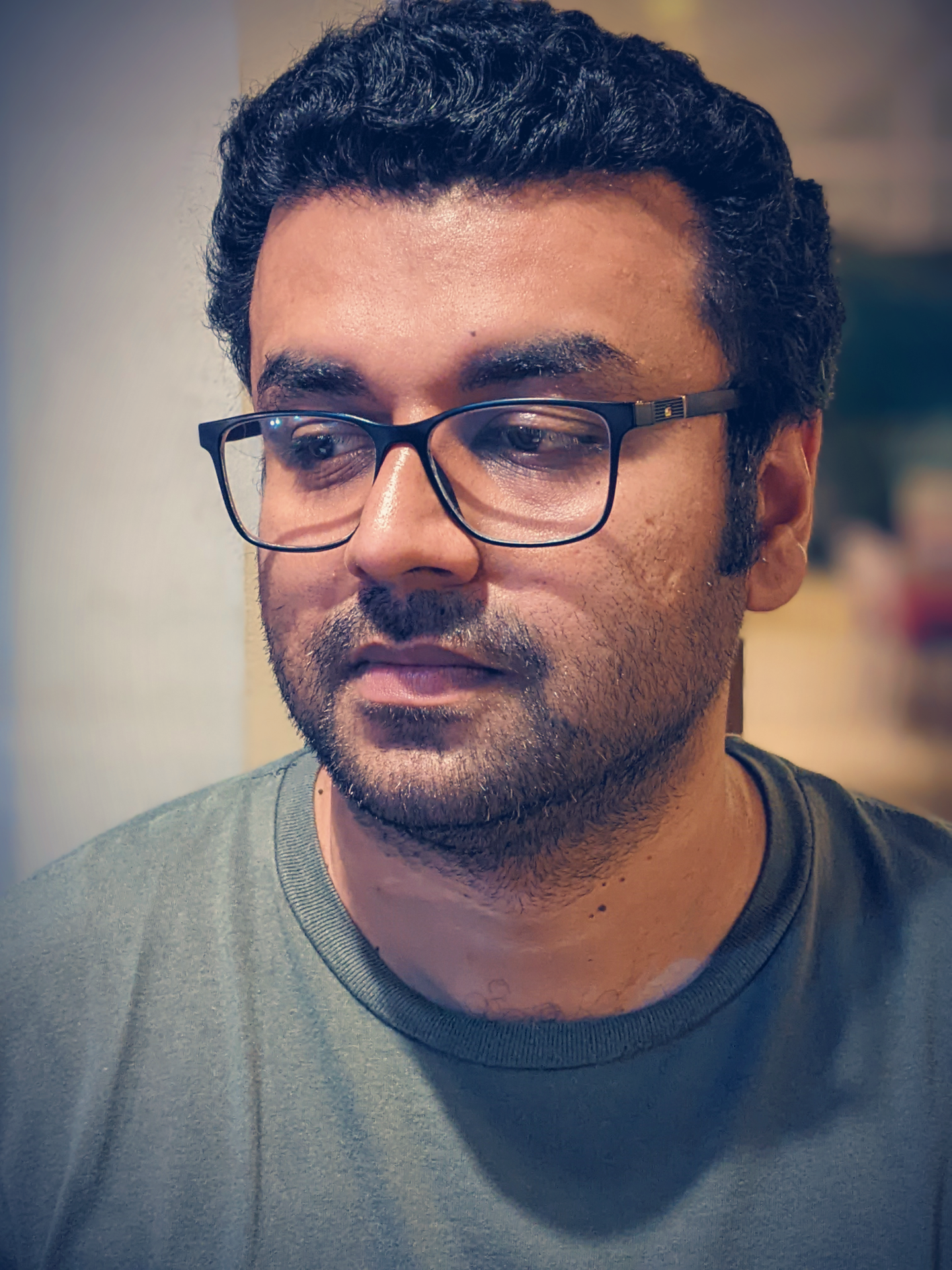
Karan Gour grew up in the quaint south Indian hill station of Kodaikanal. Music took up most of his time as he always found himself intrigued and drawn towards it. After university, he signed up for a course in sound engineering in Mumbai to nurture his passion for sound and music.
Almost subconsciously, cinema slowly but steadily rose to his attention. Be it VHS tapes from the 80s, cable television from the 90s or the internet from the 00s, it was movies that seemed to inspire his music more than anything else. After several years of penning short films while paying the bills through a writing gig at an audio-visual technological magazine, Karan completed Corrode (a.k.a Kshay) (2012), his first feature script (link to trailer and film given below).
It took two men (writer/director Karan Gour and cinematographer/ visual effects Abhinay Khoparzi) four years and $10,000 to complete Corrode. Besides writing and directing, Karan also edited the film, composed the music and the sound design. Everything was done in a 2-room apartment that doubled up as a prop workshop, a green screen studio, an ADR studio (Karan’s bedroom became the recording booth, while Abhinay’s bedroom was the control room) and an editing studio.
Corrode went on to be a breakthrough, critically-acclaimed indie, which won awards at many film festivals including winning the ‘Asian New Talent Award’ at the Shanghai International Film Festival (the prize money was twice the budget of the film). He also won the ‘Best Director’ award at SAIFF, New York and the ‘Best Film’ award at IFFLA, Los Angeles. After its year long run at film festivals, Corrode released theatrically in India followed by a Netflix and Amazon release.
For Karan, Corrode was more than just a stepping stone into films. It taught him things about filmmaking that no film school could ever teach. How to grapple with frustration, how to get a film’s aesthetic to inform the narrative while maintaining alignment with the film’s budget – the delicate ratio of compromise. Needless to say, a feature film done in such circumstances takes an enormous amount of focus and dedication.
Karan’s second feature film, Fairy Folk, is currently in post-production. This time too, he will be handling most of post-production, albeit with more resources than he ever had on Corrode.
During the time between Kshay and Fairy Folk, Karan did a lot of work in composing background scores for films such as Titli (2015). Titli went on to premiere at the Cannes Film Festival under the ‘Un Certain Regard’ category and also won the Best First Foreign Film Award by the French Syndicate of Cinema Critics. The film was lauded by critics the world over and the background score was always given a special mention.
His more mainstream background score work was for films like NH10 (2015) and Phobia (2016), the latter an Indian horror film that finally managed to break the clutter of this genre by not relying on the background score for ‘horror scares’. We used the music to compliment the mood rather than explicitly tell an audience what they should feel.
Gigs/workshops
- 6/Jan/2024: Noise at Shoonya - Shoonya - Bengaluru
- 24/Dec/2023: NOISEOISEOISE - Paramo - Goa
- 9/Jul/2023: NammaTribe Web3 - Off The Record - Chennai
- 2/Jun/2023: JSConf India 2023 Bangalore - Bengaluru International Exhibition Center
- 27/May/2023: Art of Code - Algorave with Tezos India - Social New BEL Road - Bengaluru